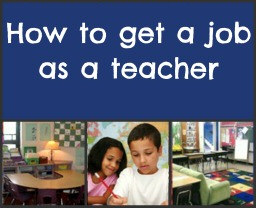Praise: A Great Motivator for Student Achievement
Rewards More Than Punishments

How often must I praise my students? Should I use the positive approach
to reinforce students� actions? Every day, educators come across these
issues. When learners of different preferences and attitudes come together
in one class, teachers are to weigh the best practices that will benefit the
majority, if not all of the class members. When half the class is
listening and the rest is doing something else, educators are caught in the
middle of giving praises or making use of punishments.
What can make students want to learn more? How can I help them achieve?
More than pushing students towards achieving things beyond the standard of what
they can, teachers have to consider the power of assurances. When standing
in front of a class an educator might have the delivery of content in mind, but
the students have a multitude of concerns in theirs. Nobody wants to hold
classes in front of a bunch of robots who make identical simultaneous answers to
all the questions. Above all, Spartan-style education is no longer
regarded as the producer of students who are smart enough to face the real
world.
The Power of Praise
A short phrase of affirmation whether spoken or written, is a very powerful
driving force for students. Unfortunately, research revealed that despite
this many failed to utilize praise even in special education classes or primary
school classrooms. When given praises clearly, students tend to maintain
or do better on their behavior or academic performance as living up to the
expectation expressed. For students, this is proof of a teacher�s approval. It
is proven that praise has been instrumental in raising students who possess
strong motivation, perseverance, and determination to achieve through hard work.
This in turn will equip them with the much needed life skills outside the four
corners of the traditional classrooms.
In addition, being considered a type of social approval, praises are known to
help control students with behavioral issues. With most children having
these issues from variety of factors, praise gives affirmation that the child
belongs to the group and will help students find their identity. With
this, class members find their membership in the circle as a sign of being
meaningful and worthy.
Making the Most Out of Your Praises

Though praises are proven to be effective sculptors of attitude and forces of
achievement, one generic way of giving it does not work for everyone. With
varying personalities and attitudes, students take praises differently than
their classmates. It is then up to the teacher to know what kind of praise is
given to what kind of class members. A mere �Good job!� for example, might
sound positive but it does not tell the students exactly what was done greatly.
Hawkins & Heflin (2011) claimed that when praises are coupled with exact
behavioral descriptions, they direct students down the right track and even
motivates them to do better. So, the next time you have to praise your
students, don�t just say �Good job!� Instead use something like, �Good job! You
have achieved what was expected of you by following the instructions perfectly.�

Another way of giving praise effectively is to recognize hard work and a
student's ability. When correcting students� essays, for example, don�t
just say �Well-written! You have the talent to become a writer!� Instead, write
something like �Excellent work! You obviously done your research on the
topic you have chosen.� This tells the students clearly how you value their
efforts. This also reminds students that they need to work harder and better to
be rewarded and recognized.
Summing it Up
Praises work differently on varying personalities and contexts. When
given correctly, it becomes an effective jump off point for students to achieve
more. As students are rewarded with teacher�s approval through praises,
their performance will be directed and inspired. This ultimately will
create individuals who are hard-working, motivated and directed towards
excellence. Who knows, that silent kid in the corner may have talents you
never seem to notice. A single praise could launch him to excellence not
just in school, but in life.
Teachers
5 Reasons to Use Norm Referenced Tests in the Classroom
5 Ways to Use Criterion Referenced Test in the Classroom
Photo Memoir: Writing Assignment
Top 5 Things to Know About Your ESL Students� Backgrounds
Group Work in College ESL Classrooms
How to Teach Business English in ESL Setting
Benefits of Using Graphic Organizers in the Classroom
How to Use Storytelling in Language Teaching
How to Correct Student Essays
The Most Common Problems in ESL Classrooms
Tips on Teaching ESL Students Vocabulary
Praise: A Great Motivator for Student Achievement
Peer Feedback is a Great Tool in Writing Classes
 |